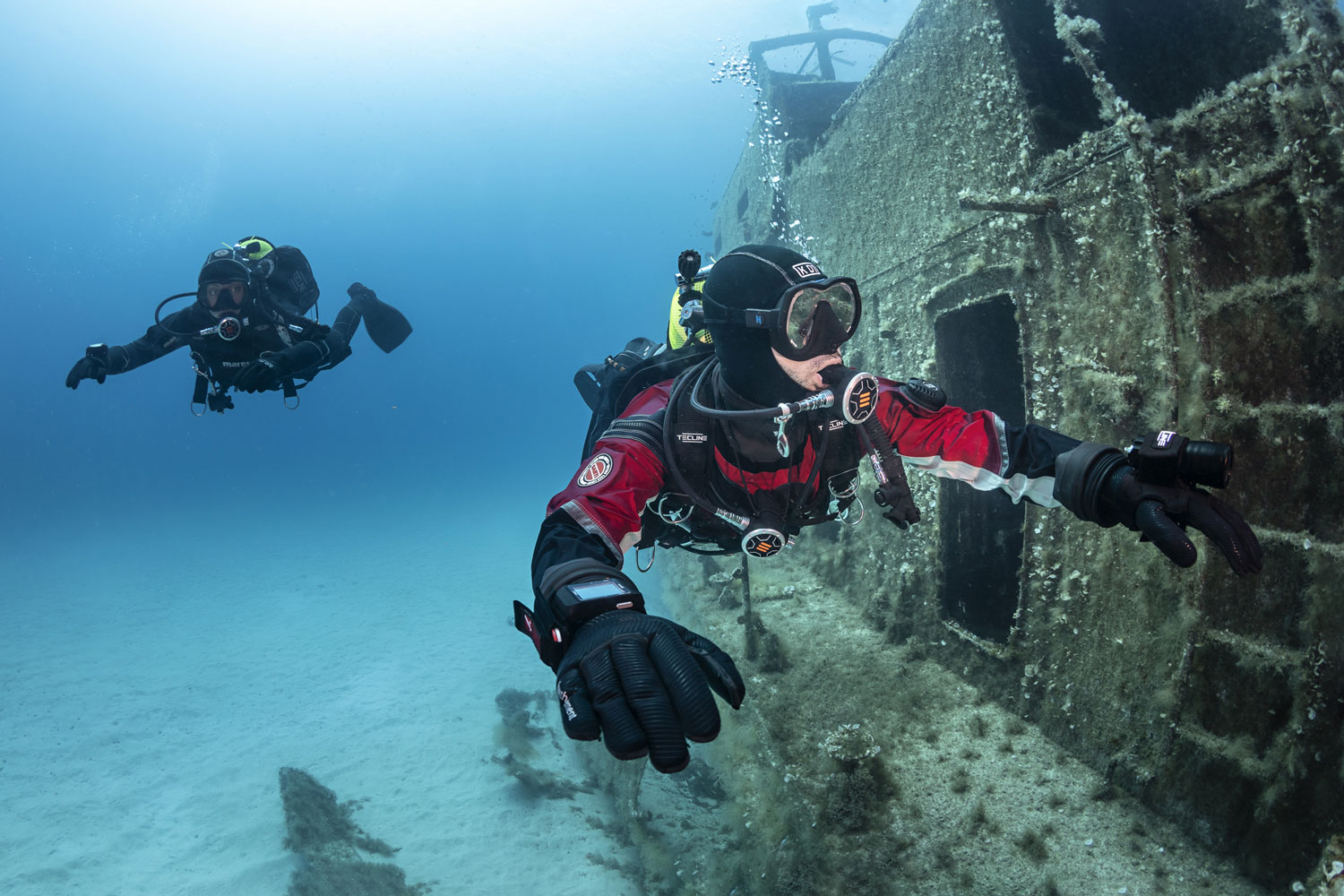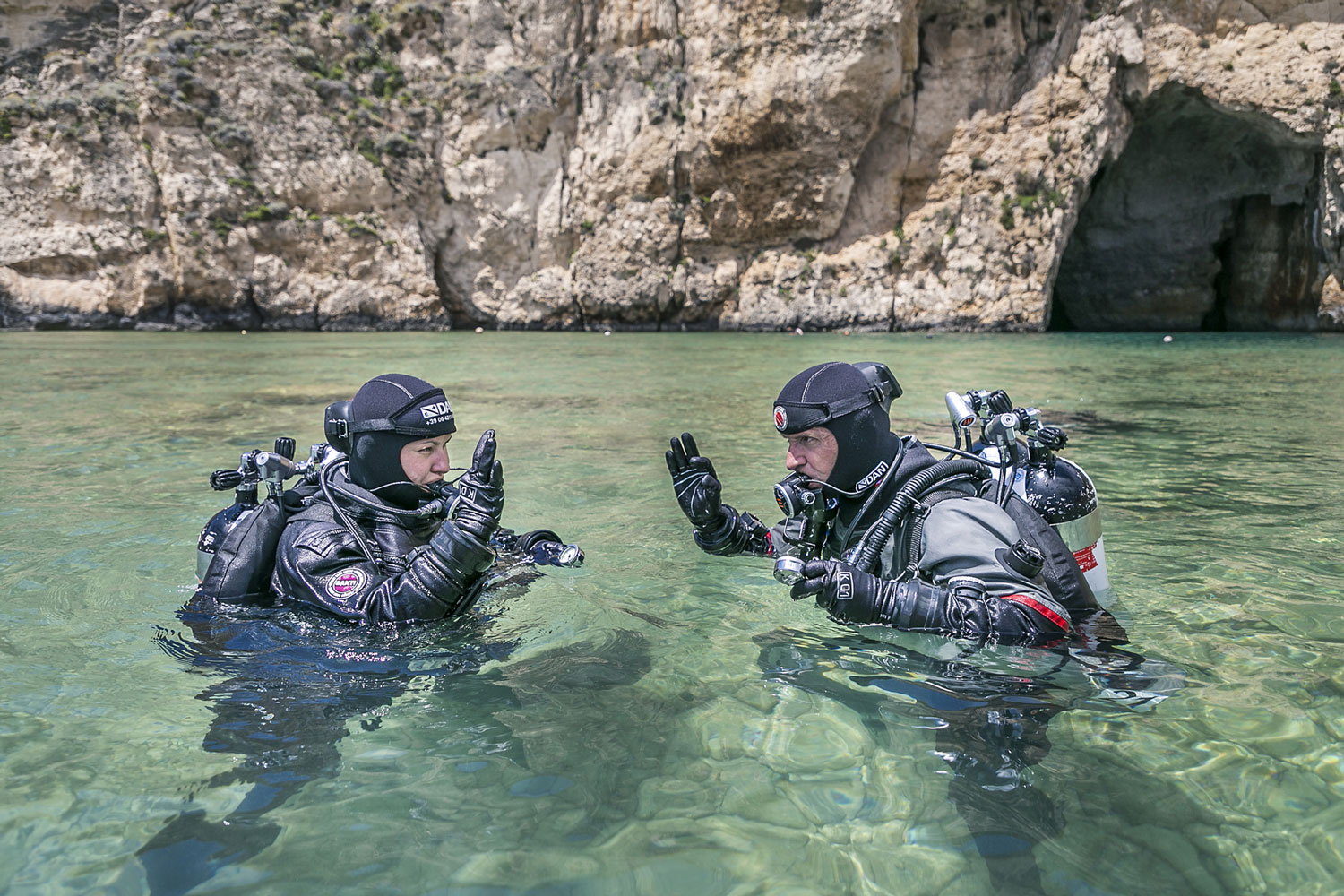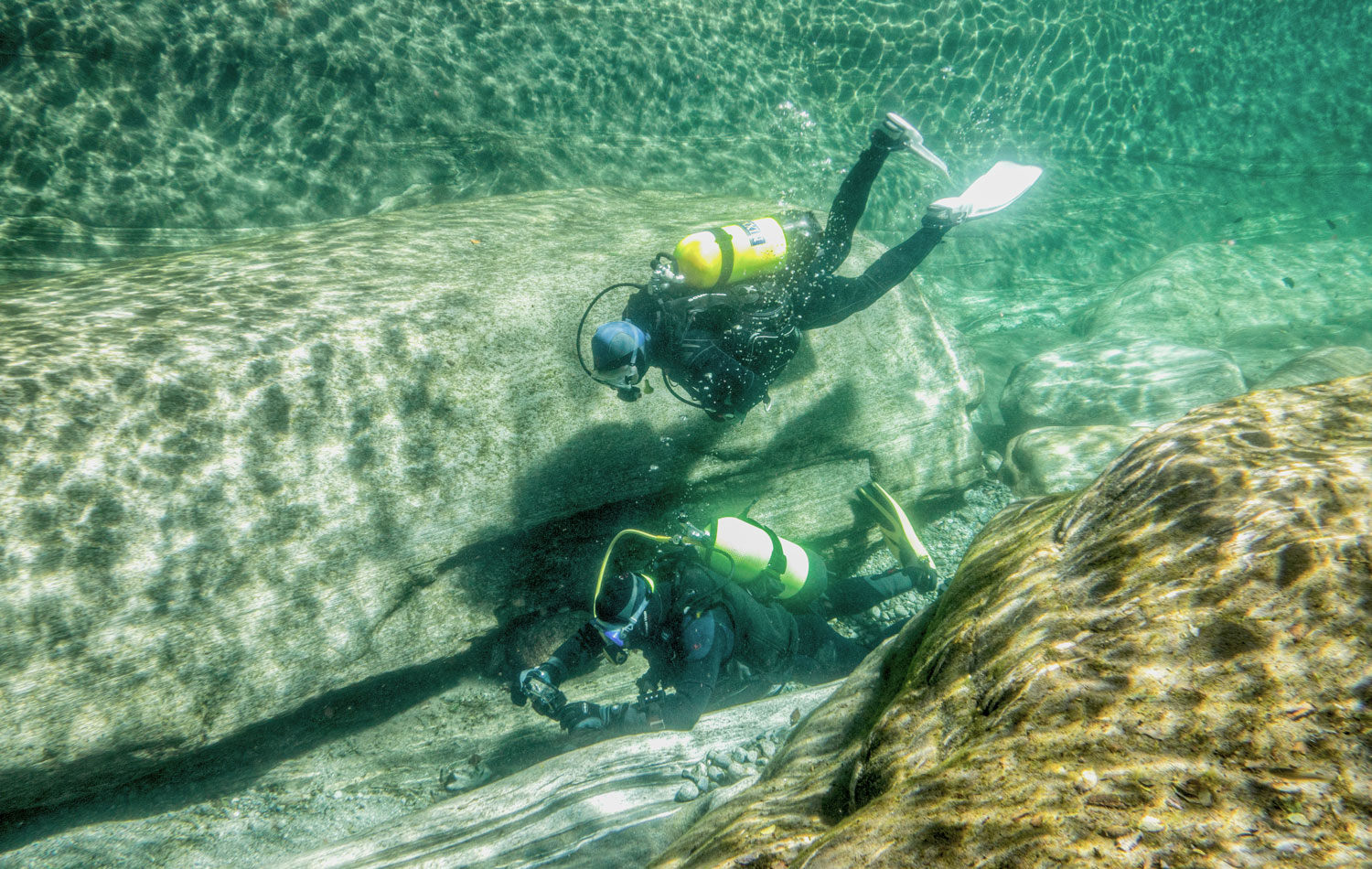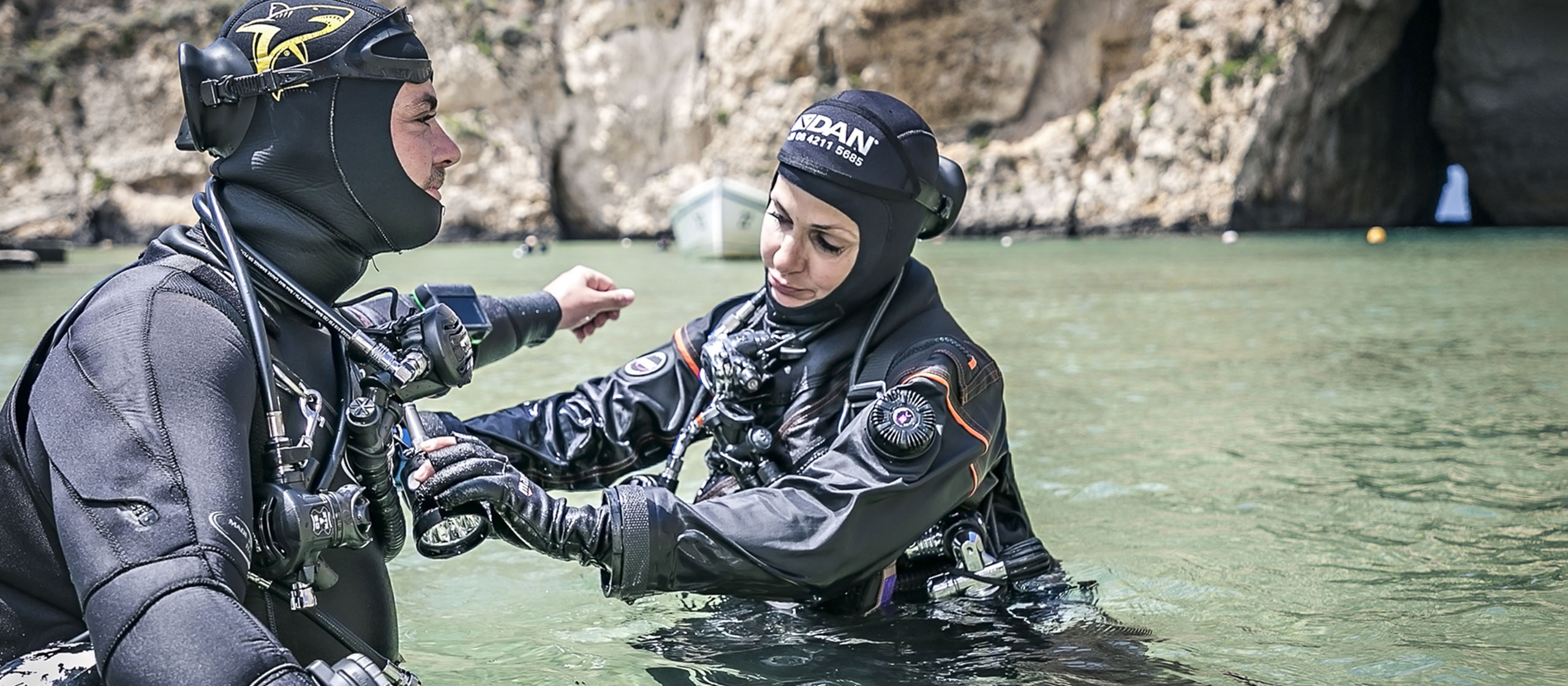Diving Etiquette
Diving etiquette: The Buddy
“Who’s this guy who wants to teach us how to behave? Do we really need this?”
The first misconception is that common sense is a kind of talking cricket, ready to suggest the best way to behave under any circumstance.
The fact is, boats and sea depths are not a familiar environment for everyone, so there’s always the risk of taking a fault step.
Most codes of conduct were created to prevent misunderstandings from triggering duels, wars and other unpleasant events. Incidents in diving are on average less dramatic, but let’s not forget that propellers and nitrogen can do as much damage as swords and katanas.
Let’s face it: the way some divers behave can be annoying. Luckily, there’s also a lot to laugh about. Gaffes and mistakes are often the sparks that trigger fun and laughter.
This series on diving etiquette is the result of careful observation of divers, their social behaviour and, of course, from experience, as defined by Oscar Wilde: the sum of our mistakes.

THE BUDDY
Some divers find it hard to believe, but safety and fun in diving both rest on the same foundation: the buddy system. Simply put, thanks to a close companion, you can count on extra help and air supply. Four eyes are better than two, not only for safety checks, but also to enlarge the scope of our observation. Two people see more than one, and can potentially have more fun together.
Treating well your buddy and making sure he/she is at ease is the duty of every diver. If you don’t do so, then it is very likely he/she’ll get even with you, ignoring you, or failing to report the passage of that amazing whale shark while you are adjusting your BCD. So, whether your buddy is the one you brought from home or found on site, respect and duties remain the same. If you don’t know each other yet, a little bit more kindness will go a long way.
Present yourself well, as divers. Go beyond a nice smile and a “Hi, I’m John”. Tell (briefly!) about yourself, your experience, what you like to see underwater. Breaking the ice using these conversation topics will help your buddy to pay more attention to you, and to talk about his/her own dives, and his/her expectations. Ask him/her where he dived, how many dives he has on the logbook. Show yourself genuinely interested in his/her experiences. Knowing his/her limits will help you prevent surprises underwater, or make you more confident. Ask him/her where he/she prefers to position himself/herself in relation to you, because you both should find yourselves at a glance, just turning your head. New buddies can be easily recognised by the way they continuously rotate on three axes. If you brought your buddy from home, you do NOT need to ask him/her again about his/her life.
If your buddy is less experienced than you, use the great courtesy of adapting to his/her abilities, to the limits of his/her certification, and not vice versa. Avoid to make his/her uncomfortable, or to put his/her under a stressful situation. Adjust your pace, depth and timing to his/her abilities and consumption rate. Sneaking to 40 meters to admire a gorgonian, while leaving an Open Water buddy at 18 metres (“but it was only for a little while!”) is just rude.

Agree on underwater signals. Shakers, ducks and balls are (unfortunately) very common, and everyone knows how to recognise them. However not everyone knows that you can scream in the regulator in order to be heard. If you want to use this system, tell the buddy and maybe do a couple of tests while on surface. Grabbing someone by the fins is not the best option, but always better than a slap on the thigh. The right place to (gently) touch people, if needed, even underwater, is the shoulder.
Communicate. Show your buddy what you find interesting. But avoid prolonged contemplation of things your partner might find less fascinating than a road sign. Ten minutes in front of an artillery bullet is a long time if your buddy is not a military history lover.
If, on the other hand, you are matched with an underwater photographer, then ask the diving centre manager for a strong discount on the dive!

DONT’S
- Avoid take your buddy by the BCD hose if he’s lost control and is sinking. I’m not even explaining why. If you have any doubts, it’s time to consider re-reading your Open Water manual, equipment and buddy-system sections.
- Tricks and jokes, like closing the air or removing the mask, especially with a buddy you do not know well.
- Use the P-valve when too close to your buddy. It is allowed to do it in the wetsuit, if it is yours and is not rented.
FINAL CONSIDERATIONS
Whether yours is a new buddy or your long-time dive companion, always use him/her the courtesy of a safety check, even when on a rubber dinghy: this is one of the most disregarded rules. It’s a little thing, which takes less than a minute, but which guarantees safety and comfort.

Abandoning your buddy, both in the water and on the surface, is not only rude: in the event of an accident, this could have legal consequences.
Divemaster tip. If you are organising the dive, and assigning buddies to each other, a golden rule is to create harmonious pairs. Unless particular dive centre guidelines apply (e.g. people who know each other), experts should be paired with experts, newbies with newbies. I know that it can be more demanding for you, but you can solve it with the usual, old method: placing closer to you those divers who need more attention. After all, experienced divers who paid for the dive are not there to take care of others: that’s your job.

